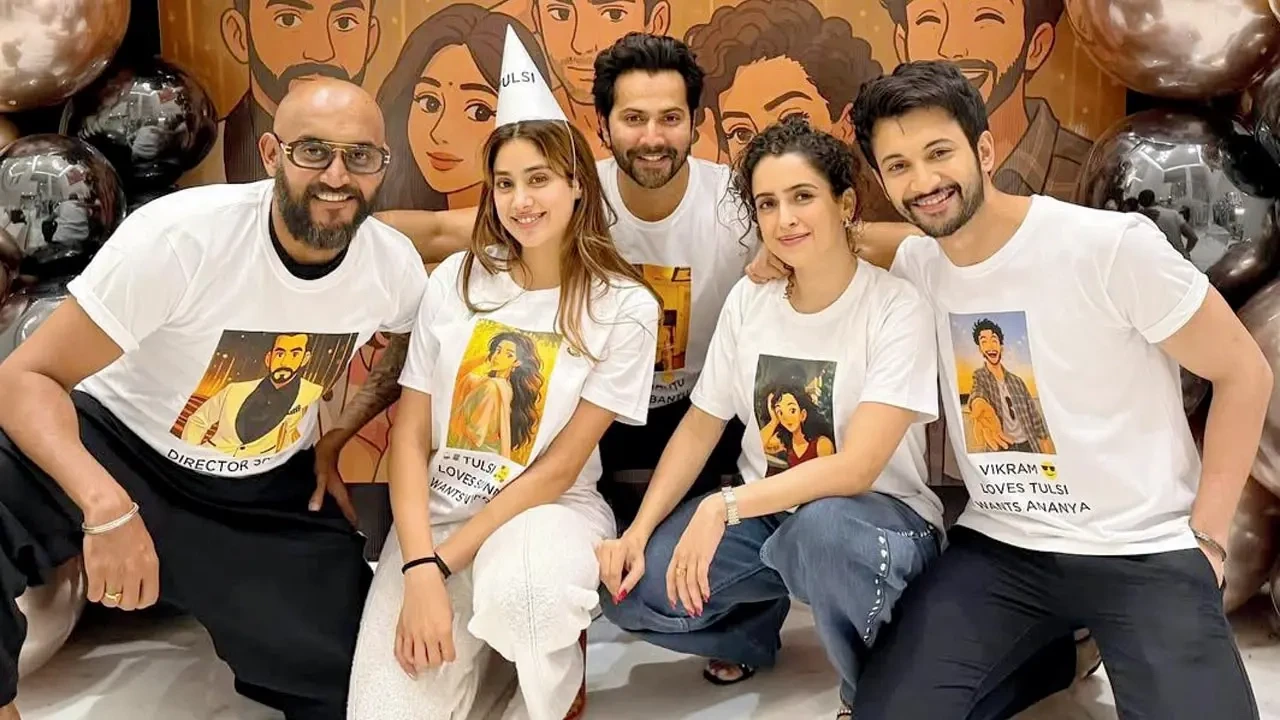In the 1990s, most of us grew up on David Dhawan’s comedies. Over two decades on, entertainers in that genre have reduced in Hindi cinema, with Shashank Khaitan being one of the few filmmakers attempting it.
From his debut film Humpty Sharma Ki Dulhania (2014) to his latest work, it’s easy to see that Khaitan is influenced by the senior director’s school of cinema, blending romance and comedy to make an all-out entertainer.
Ask him what led to that brand of comedy’s decline, and Khaitan analyses that it was perceived as “easy”. “A narrative was created that these films were not real cinema. People started believing that only films with intense messages were serious cinema. It made filmmakers apologetic about the genre. But the truth is that someone like David Dhawan could teach cinema to anyone, given his understanding of editing and craft. The genre was unjustly treated. It’s as tough to make a Sunny Sanskari… as it is to make a Homebound. Our definition of entertainment needs to expand. Entertainment isn’t only laughing and clapping. Homebound was entertaining to me because it engaged me, taught me about a different worldview,” he shares.
(From left) Janhvi Kapoor and Varun Dhawan in the film. Pics/Instagram, Youtube
The industry may create its narratives, but Khaitan is staying true to what he knows. With the , Janhvi Kapoor, Sanya Malhotra, and Rohit Saraf-starrer, the director is bringing a family entertainer set against the backdrop of a big, fat wedding. His trump card is his leading man Varun. Having worked together on two movies previously, Khaitan says they push each other by surprising one another.
Khaitan shares, “When I write for Varun, I have to think, ‘How do I present him differently?’ Otherwise he’ll get bored of me. So even within a similar universe, we tried to make Sunny different from Humpty and Badri. Here, we’ve gone more tongue-in-cheek in terms of the performance.”
Shashank Khaitan
As he reunites with Kapoor seven years after launching her in Dhadak (2018), the difference in the actor is evident to him. Today, she is more confident and aware of the world around her, he notes. “When Dhadak was released, she was dealing with a massive personal tragedy, which made her retreat into a shell. Now, she is much more open and ready to express herself as an artiste. She accepts the pros and cons of her family background, the love and hate that comes with it. She is not scared to take chances. That’s exciting for me as someone who knows her personally, and as a director who now has an actor unafraid to take risks.”
With Sunny Sanskari…, Khaitan has managed something unusual — an ensemble cast where each actor holds his ground. Many directors say it’s impossible these days because of egos. What’s his take? “I managed it by being honest with everyone. I gave my entire script to the actors and told them, ‘Only come on board if you trust me’. I don’t oversell. I don’t make commitments about things beyond my control, like posters or promotions. That honesty keeps egos out of the conversation.”
